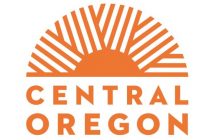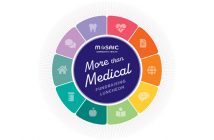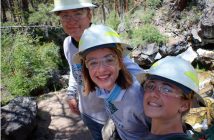Recession Not Over for Working Families
In Central Oregon, 49 percent of households in Jefferson County, 46 percent in Crook County and 37 percent in Deschutes County don’t have enough income for a monthly budget that includes housing, food, child care, health care, transportation and a cell phone.
New data released by the United Ways of the Pacific Northwest and the United Way ALICE Project shows that in Central Oregon, nearly 35,000 households live just one unexpected expense away from financial crisis.
In Central Oregon, nearly 11,000 households live below the federal poverty level. Another nearly 24,000 are ALICE families. ALICE stands for Asset Limited, Income Constrained, Employed. ALICE households earn incomes above the federal poverty level, but less than what it takes to survive in the current economy. Families living below the federal poverty level combined with ALICE households make up 49 percent of Jefferson County, 46 percent of Crook County and 37 percent of Deschutes County’s households. That’s 35,000 of Central Oregon’s 88,000 households.
“The ALICE Report is so important because it shows us what’s really going on locally, here in Central Oregon,” said Diana Fischetti, director of development and marketing at United Way of Deschutes County. “National data just doesn’t show the extent of the financial struggle faced by so many in our community. ALICE households are a population that many of us are part of; and if not us, then our friends, neighbors, families, coworkers, families of our children’s friends and those we encounter in our daily activities. These are people who are working hard, sometimes more than one job, but often still cannot make ends meet and are living on the edge.”
The United Way ALICE Project uses 2016 data to compare the cost of a household survival budget against incomes in each county in Oregon, Washington and Idaho. The term ALICE was coined to shed light on those essential workers often overlooked by other economic indicators and policy discussions. ALICE includes our child care workers, home health aides, restaurant employees and store clerks — men and women who work at lower-paying jobs, have little or no savings and are one emergency away from poverty.
Since the end of the Great Recession in 2010, there have been improvements in employment and incomes, but the economic recovery in Central Oregon has not been even. The increased cost of living in our area has pushed households below the ALICE Threshold, which describes households earning less than the cost of basic needs in each county.
“Despite seemingly positive economic signs, the ALICE data shows that financial hardship is still a pervasive problem.” said ALICE Project Director Stephanie Hoopes, Ph.D., who leads the data analysis. “This research dispels long-standing myths about financial instability by showing that ALICE families exist in every community and among all ages, races and ethnicities.”
The ALICE Project was launched at the start of the Great Recession by United Way of Northern New Jersey, with standardized measurements that provide a comprehensive look at financial hardship across the nation. The ALICE Project is a grassroots movement that seeks to redefine financial hardship in the U.S. by providing comprehensive, unbiased data to help inform policy solutions in all branches of government, as well as in business, academia and nonprofit organizations. United Ways in 18 states — Connecticut, Florida, Hawaii, Idaho, Indiana, Iowa, Louisiana, Maryland, Michigan, New Jersey, New York, Ohio, Oregon, Pennsylvania, Texas, Virginia, Washington and Wisconsin — are collaborating on the ALICE Project, with more lined up to join next year. United Ways across the nation and their partners are using the data to develop policies, allocate resources and address community needs. With this data, ALICE Project members work to stimulate a fresh, nonpartisan dialogue across the country about the importance and fragility of working families living paycheck to paycheck.
deschutesunitedway.org





